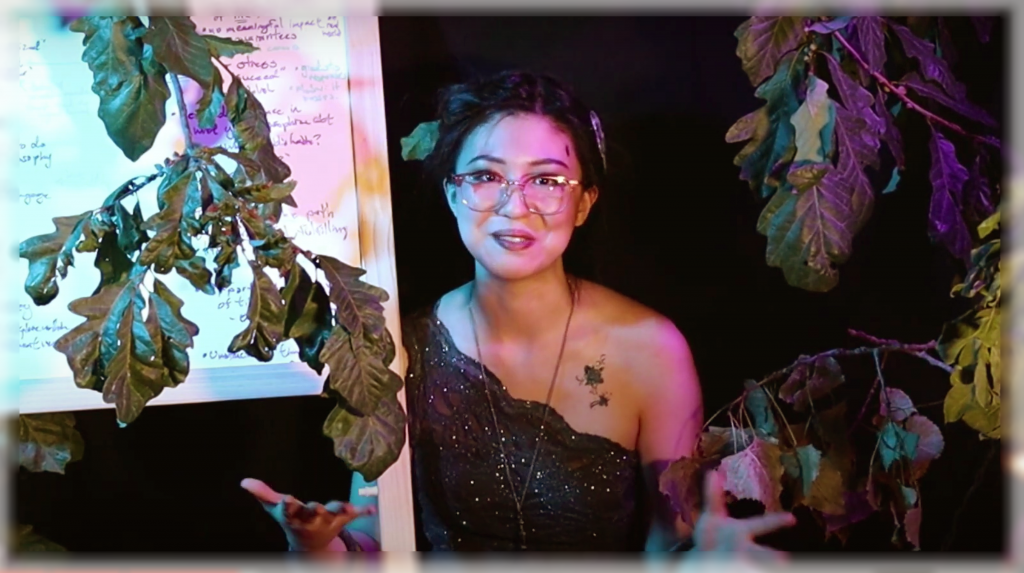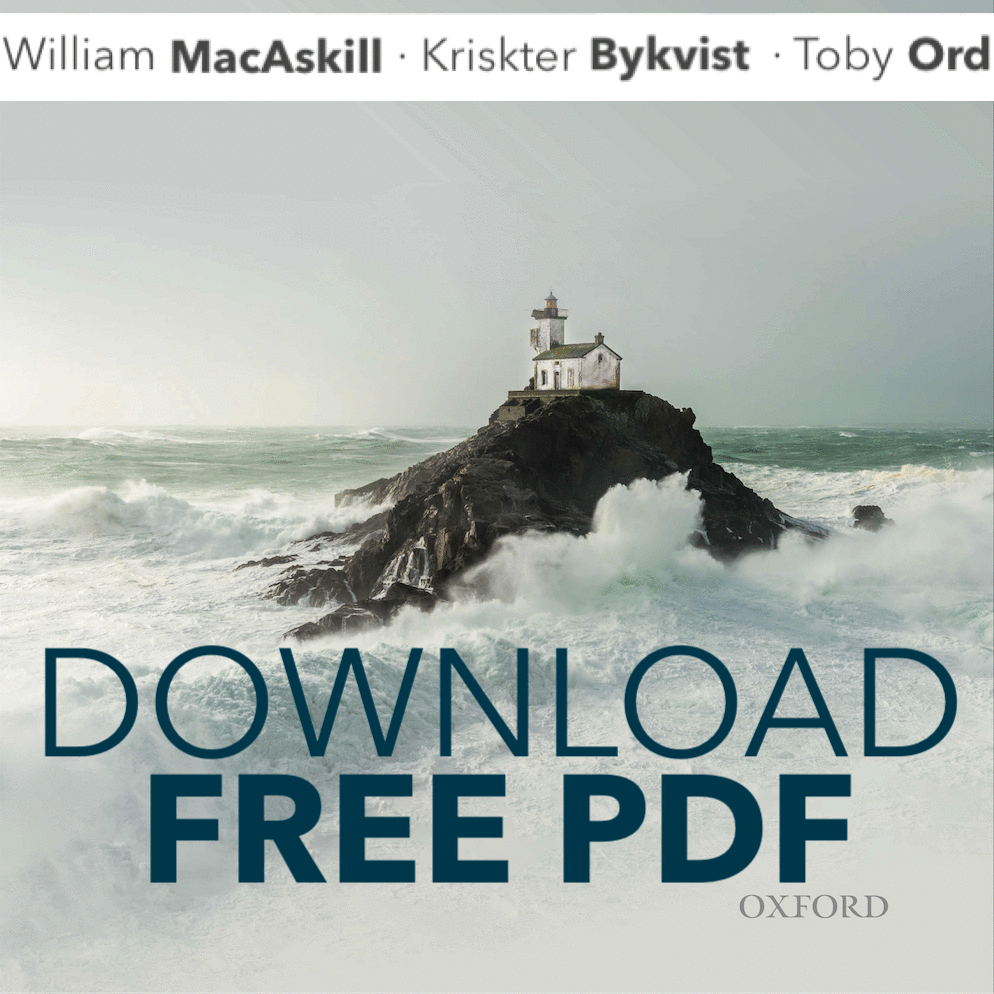“To Think Or Not To Think”: A Video About Whether To Go To Grad School In Philosophy
“Why did my professors always encourage me to live the philosophical life, yet suddenly change their tone when asked about graduate school? I thought about all my interests outside of philosophy. I wondered whether philosophy was worth pursuing at all. I wondered how anyone can know what is worth pursuing.”
Shanshan (Susan) Cao, an undergraduate at Boston University, has been trying to figure out what to do when she graduates from college, and pursuing graduate studies in philosophy is one of the options she is seriously considering. Finding the decision challenging, she decided to talk to philosophy professors and graduate students, make lists of pros and cons, and think about how to think about this question, ultimately creating a video about it, entitled “To Think or Not to Think: Is Philosophy Grad School Worth It?”
In the following guest post*, we hear first from Ms. Cao and then from Michaela McSweeney, assistant professor of philosophy at Boston University. Ms. Cao shares her thoughts about her decision and how she came to make her film. Professor McSweeney discusses “why not just undergraduates and potential graduate school applicants, but also graduate students, faculty, and philosophers not currently employed in philosophy might also want to watch Susan’s film.” The video is at the bottom of the post.
To Think or Not to Think: Is Philosophy Grad School Worth It?
by Shanshan (Susan) Cao
When people without philosophical training think about philosophers, images come to mind of ancient Greeks wandering around Athens barefoot or 18th-century Enlightenment thinkers writing treatises. I can’t blame them. I thought the same until I came to college. Only then did I learned that this archaic image of philosophy is quite unrepresentative of the subject today. I learned about the existence of philosophy graduate school, a magical place where I, too, can become a philosopher. The natural question arose: should I go?
The question of whether, and for whom, philosophy grad school is worthwhile motivated my 45-minute documentary film, To Think or Not to Think. At the time of its creation, I was struggling to reconcile the differences between my romanticized ideals of what a philosopher stands for and the mundane realities of actually being a professional philosopher today. Why did my professors always encourage me to live the philosophical life, yet suddenly change their tone when asked about graduate school? I thought about all my interests outside of philosophy. I wondered whether philosophy was worth pursuing at all. I wondered how anyone can know what is worth pursuing.
I besieged my professors’ office hours so much with these anxieties that one of them finally said to me, Susan, why don’t you apply for the Karbank Fellowship and figure some of this stuff out? And that’s how this film happened. With the Karbank Fellowship (see last paragraph of our post for more details), I had an entire summer to methodically examine every one of my questions. I wrote a project proposal, interviewed philosophy professors and graduate students, interviewed people outside the discipline to get fresh perspectives, read books, self-reflected, took breaks from self-reflecting, etc. There were no other distractions…well, no distractions aside from the pandemic and American political chaos and the collapse of my mental health. The usual package when one is making long-term life-changing decisions, of course.
From the embers of this transformative summer emerged To Think or Not to Think. In the film, I offer my best reflections on the pros & cons of philosophy academia, the process of making life-changing career decisions, mental health and philosophy, and finding fulfillment during chaotic times. I can’t promise good answers. But for philosophers in a similar place as I was, I can promise to share what brought me a little more clarity and peace.
Commentary on “To Think or Not to Think”
by Michaela McSweeney
I wanted to provide my own take on why not just undergraduates and potential graduate school applicants, but also graduate students, faculty, and philosophers not currently employed in philosophy might also want to watch Susan’s film. Of course, we might be interested at a sociological level: what do the philosophers Susan talks to have to say about the profession of philosophy? How does all of this sound, and how is it made sense of, by an extremely smart and thoughtful undergraduate student? I do think that is interesting (my cringeworthy cameos aside), and Susan’s synthesis (and comedy!) is extremely compelling.
But what primarily struck me about this film was the wisdom and depth with which Susan deals with the kind of existential crisis that becoming an academic philosopher (or, in this case, just thinking about becoming one!) can induce. At its absolute worst, academic philosophy strikes me as not just problematic in all the ways we tend to reflect on, but as also being prone to induce crises of meaning: on the one hand, many (of course not all!) of us find our work genuinely deeply meaningful—those of us who are employed are lucky to be able to do, as a career, something we find deeply meaningful. On the other hand, the cutthroat competitiveness, difficulty of publishing (especially in “top” journals), often seemingly arbitrary judgments about what work has merit and what doesn’t, and sometimes bizarre philosophical trends, all serve to undermine our ability to control and shape our own time and work, and, I think, to undermine—or at least constrict—the creative process and the very source of deep meaning that philosophy can, at its best, provide. Further, all of this serves as a gatekeeping mechanism for excluding a great many philosophers from academic philosophy jobs altogether.
The “fulfillment” and mental health” portions of this film struck me as having something very wise to say about this whole situation from the perspective not of what to do about it or how to fix it at a structural level, but instead about how to live a robust and meaningful life in spite of it. Amidst a global pandemic, Susan attempts to make sense of her own existential crisis about the give-and-take between, on the one hand, the pursuit of a career that is meaningful and important to her, and on the other, maintaining a fulfilling life regardless of her career. Thus she is concerned about something that matters to all of us: ensuring that she grounds what is meaningful in her own life in such a way that she can protect herself from the whims of the academic world, and not losing her own sense of self in finding meaning in academic philosophy. I wish I could have watched this film several times over when I was in graduate school—it is a cliché to call it wise beyond its years, but that is straightforwardly what it is. I hope everyone watches it.
Susan’s project was funded by the Karbank Philosophy Summer Fellowship at Boston University. Steven Karbank received his BA in philosophy and psychology from BU in 1979 and went on to a successful career in business. He later provided BU’s philosophy department with an extremely generous challenge grant, as well as annual gifts in support of the department’s mission. The Karbank Fellowships provide meritorious BU undergraduate students with generous summer grants to pursue all sorts of creative and educational experiential philosophical projects that they otherwise would not be able to undertake, including pursuing EMT training with an eye to gaining a better understanding of ethical challenges in the real world, teaching philosophy to middle schoolers, constructing an oral history of the Polish Solidarity movement, investigating claims about consciousness using a sensory deprivation tank, hiking the California coast so as to explore the philosophical connection between freedom and nature–to mention just several of the funded projects. We are enormously lucky (and grateful to Steven Karbank!) to be able to fund these projects.




Thanks for posting this Justin! Also just wanted to give a shout out to my colleague Charles Griswold for helping us with the post.
I want to second everything Michaela said! Many thank you’s for sharing this, Justin.
This is fantastic! When I have students interested in graduate school in the future, I will point them in the direction of this video to help inform and orient our conversations. It’s thoughtful, informative, and funny. Well done!
Thank you Matt! Super glad this can be helpful.
I’m not a philosopher, never considered going to grad school in philosophy. With that said upfront, I watched the first 25 minutes or so, and it’s well done. I’m not sure the phrase “carrying the torch of reason” is all that helpful, though, as a description of what professional philosophers do, even if it was said slightly tongue in cheek. Maybe I’ll get some pushback on that here.
Going to grad school in almost any of the social sciences or humanities these days strikes me as a somewhat dicey proposition, except for people who are exceptionally driven, talented, brilliant, focused, or some combination of all the above. (I’m not suggesting those adjectives apply to me, by the way; on the contrary. But I digress.)
In Susan Cao’s case, just on the basis of watching the first 25 minutes or so, I would think that finding some way to pursue her interests in math and computer science as well as philosophy, maybe in some kind of interdisciplinary program if they exist, would make more sense from a number of angles than going to philosophy grad school. But that’s just my two cents as a non-philosopher. I probably should have watched to the end, and I may come back and do that later.
Haha I also have my doubts that philosophers are the sole torch-bearers of rational thinking in society. Hopefully the rest of the video contextualizes that line and makes it clear that it’s only one of many ways one can find value in being a prof. philosopher!
This does an excellent job of exploring the question. I found it immensely helpful in regards to both philosophy grad school and the broader questions tackled towards the end. Susan, you should be proud both of the wisdom it seems you gained over the summer and of this video, which is well-produced and has worthwhile content. ~A recent college grad
Thank you!
Wow, this was great! As someone who is a current applicant to Philosophy PhD programs and in a great period of liminality, watching the documentary helped reassure me that I did not make a terrible mistake by pursuing philosophy. Thank you Susan for your amazing, well-researched work (as well as your vulnerability and openness about your own personal struggles). It came along at just the right time for me, and I will surely be recommending it to friends!
This is so great to hear. Best wishes for your applications!